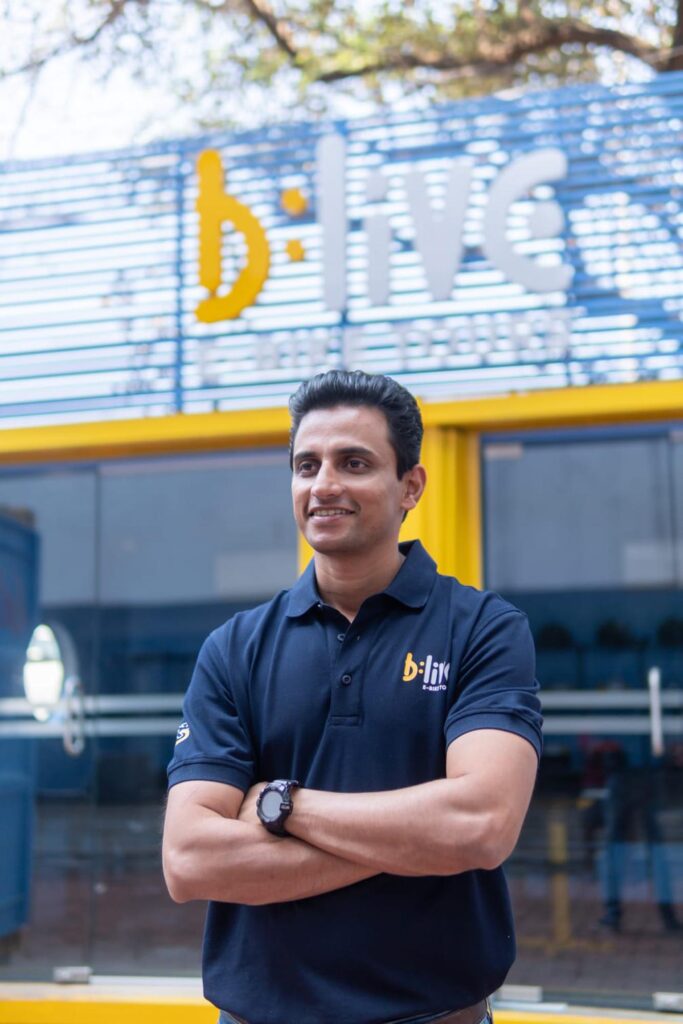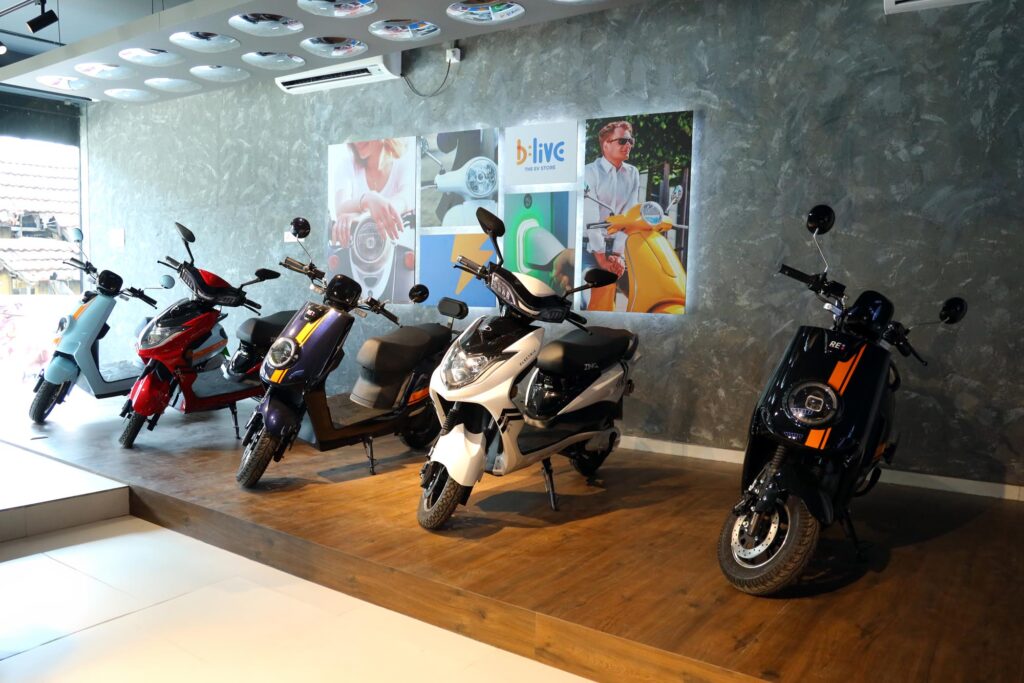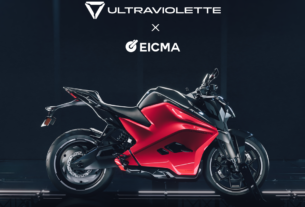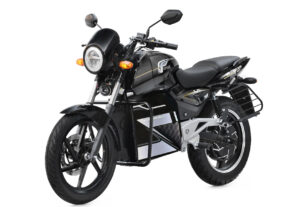
Mr. Samarth kholkar, CEO & Co-Founder Of BLive
In the rapidly evolving landscape of last-mile mobility, electric vehicles (EVs) have emerged as a sustainable solution, promising efficiency and eco-conscious delivery services. BLive, a prominent player in this domain, stands at the forefront of innovation, offering tailored EV solutions to meet the burgeoning demands of businesses. In this exclusive interview by Raghul Sivaguru, we delve into the insights and strategies driving BLive’s success, as shared by Mr. Samarth Kholkar, the CEO & Co-Founder. From addressing the challenges of range anxiety to pioneering franchise models and contemplating entry into the four-wheeler EV industry, Mr. Kholkar offers valuable perspectives on the trajectory of EV adoption and the future of sustainable transportation.
In the B2B last-mile segment, which category of electric vehicles exhibits the highest demand? Additionally, which specific parameter receives the most inquiries?
In the B2B last-mile segment, we offer a range of electric vehicles tailored to meet delivery needs. Our line-up includes efficient electric scooters and bikes like TVS iQube, Ola, Ather, and Revolt, ideal for swift and sustainable deliveries. Additionally, we’re proud to announce our recent successful deployment of 500 TVS iQube electric scooters to Zomato, further solidifying our commitment to electrifying last-mile mobility. Range anxiety remains a significant concern among riders, with most inquiries focused on the range of EVs, emphasizing the importance of addressing this issue to promote wider adoption of electric vehicles.
What financial support is available for fleet operators leasing or renting vehicles? Is there a set financial limit for businesses?
At BLive, we provide comprehensive fleet assistance covering financial support, insurance, roadside assistance, and extended warranty through leading institutions like Bajaj Finserv and IDFC Bank. Let’s put you in the driver’s seat with our financing options, especially with our recently launched Rent-to-Own model. In this model, delivery executives pay rent for 36 months with minimal security deposit, after which the ownership of the EV is transferred to the rider from the fleet operator. We’ve introduced this model after thorough market research, recognizing that delivery executives are aspirational and prefer owning premium vehicles. Contrary to general perception, they are keen on owning an EV, which aligns perfectly with the kind of vehicles needed in the last-mile mobility business. Premium vehicles not only solve pain points like range anxiety but also cater to the needs of delivery executives, who cover an average of 100 km per day. With BLive, you get the assurance of long-range vehicles that meet your business needs and empower the riders.

Is BLive looking to enter the 4 Wheeler EV Industry? How do you look at the FAME Subsidy Extension for EVs and the movement towards Net Zero Emissions?
As we continue to expand our presence in the EV industry, exploring opportunities in the four-wheeler segment remains part of our strategic vision. In addition to our existing offerings, we are considering corporate programs aimed at providing EV solutions to corporate employees. These initiatives would not only contribute to reducing carbon footprints but also empower organizations to embrace environmentally conscious practices while optimizing their transportation needs. Our focus remains on fostering partnerships and initiatives that facilitate the widespread adoption of EVs and contribute to building a greener, more sustainable future.
Over the period of 6 years, exactly since the inception of BLive, the EV Industry has seen drastic growth and a shift in technology. What are your learning’s/observations from that?
Over the past 6 years, observing the dynamic evolution of the EV industry has been enlightening. Witnessing B2B last-mile mobility emerge as the driving force behind EV adoption, where cost savings of around 40% are associated with EVs for last-mile mobility agents, highlights the pivotal role of B2B in accelerating EV adoption. Fleet operators benefit from embracing a multi-brand approach, ensuring flexibility and resilience in their operations. The last-mile mobility sector necessitates multi-brand EV options to cater to diverse form factor requirements. Fleet operators, therefore, maintain a fleet comprising EVs from different brands to diversify their customer base and tap into greater earning potential. Instances reveal the risks of relying exclusively on a single brand of EVs, particularly those of subpar quality. Diversifying the EV fleet mitigates such risks and enhances operational resilience. Addressing challenges such as the availability of spares and services is crucial. The fragmented supply chain often leads to extended downtime, emphasizing the need for collaborative efforts within the industry to streamline the supply chain and enhance service accessibility.

What is the new program launched by BLive for last-mile mobility? What are the anticipated monthly or annual returns for micro-fleet operators participating in this franchise model?
BLive offers a comprehensive fleet solution platform to micro-fleet operators, facilitating them to lease/rent EVs to delivery riders and generate revenue through rentals. It offers individuals and businesses the opportunity to own and operate their EV fleet for rental income. Within this program, we provide a comprehensive suite of services, including financial assistance sourced from leading financial institutions across the country, granting access to a diverse range of premium EVs from multiple brands, ongoing technical support accessible through our user-friendly EZY app, consistent demand generation across multiple industries like wellness, healthcare to FMCG, and a comprehensive fleet management solution tailored to meet the specific needs of the operators.
With a minimum initial investment of INR 8-10 lakhs, fleet operators will get a fleet of 25 premium Electric Vehicles through our partnerships with leading OEMs like Ola, Ather Energy, and TVS Motors, alongside consistent demand across multiple industries like FMCG, Wellness, and Hospitality. The fleet operator can expect to see substantial returns of around 80-90% in just 36 months!





